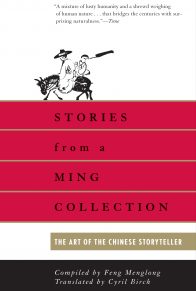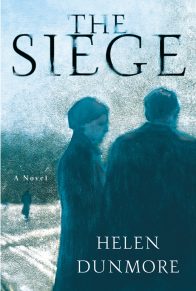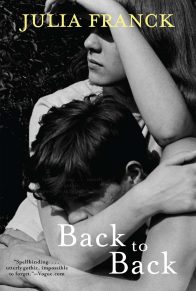1. Why do you think the book begins with Peter’s mother leaving him at the train station? How does the opening scene affect how we read the rest of the story?
2. To what do you attribute Helene’s mother’s withdrawal? Is it simply grief from losing her sons in childbirth, or is there another loss she has suffered?
3. We are told early on that Helene’s mother is Jewish. How does her Jewishness affect her life and Helene and Martha’s lives in their small town of Bautzen? What can you glean about what Jewish life must have been like in these small German towns around WWI? Is there hostility already apparent? In what ways?
4. Helene seems more uncomfortable than Martha in acknowledging her mother’s Jewishness. Why do you think this is? Do you think their different reactions to the knowledge of their Jewish heritage affects their lives?
5. Helene was never encouraged to study or work by her mother, but she is finally allowed to work for the print shop her father owned, and she experiences it as a liberation. What is Helene’s relationship to work throughout the novel? To the intellect and academic pursuits?
6. When Helene protests to the baker’s wife that her family wasn’t as well-off as she thought, “The baker’s wife raised her eyebrows skeptically. These days everyone suspected their neighbors of owning more than they did” (p. 88). A few lines earlier, Helene explains that money—currency—is worthless. How do these economic anxieties affect the townspeople of Bautzen? How do they affect Helene and Martha’s decisions?
7. At the beginning of the book, Peter finds a severed hand on the road. When Helene and Martha are taking care of their wounded, delirious father, home from the front of WWI, he recites a rhyme—”A legbone, a legbone, a legbone dancing on its own” (p. 111). Obviously, amputation and lost limbs are a result of warfare. But what else do these severed limbs represent? How does the imagery of a part being separated from the whole resonate when thinking about Germany at this time?
8. On page 113, Martha says to Helene, “mother’s heart has gone blind. . . . She can only see things, not people.” This is the first occurrence of the book’s title. What has caused Semla’s “heart blindness”? Where else in the book have people become “heart-blind”? Why does it happen?
9. Helene thought that her mother’s faith and her father’s faith must have been rivals; it’s why she dreamt about the two gods fighting in the engraving that hung in the printing studio (p. 116). Does she see her parents’ two religions as in conflict? When Helene protests to the local pastor that her mother won’t come to her father’s funeral in a church because she’s Jewish, the pastor says, “The Jews too will stand before God one day.” Helene goes on to notice, “The pastor spoke devoutly and with stern but inescapable kindness. He seemed to feel so certain of his faith that Helene had to respect him.” What do you make of the pastor’s pronouncement? Does he respect Selma’s religious beliefs?
10. When Helene is working at the printer, she makes calendars with homey maxims. “The provincials here liked to be exhorted to be virtuous in the sight of God, and it increasingly seemed to Helene, she added, that agreement on such matters was what created a sense of community here in Lusatia, bringing consolation and giving courage” (p. 142). How do you think about the role of religion in your community?
11. When Helene and Martha arrive at their Aunt Fanny’s house, they’ve arrived in the heart of Weimar-era Berlin, where drug use, lesbianism, and debates about art and literature are de rigeur. Are you surprised by the differences in the girls’ lives when they move from Bautzen to Berlin? Do you blame them for leaving their mother behind?
12. Even in Berlin, though, at Fanny’s house, Helene is the outsider; she’s younger than the rest, but even after she comes of age, she doesn’t feel part of the group of Fanny, Martha, and Leontine. Why is Helene left out?
13. When Helene falls in love with Carl Wertheimer, she seems to have found a partner who appreciates her mind, her interests in literature and medicine. They discuss poetry together, and at one point Helene says, “her God seemed so far away here. Büchner [the poet] had routed him” (p. 212). What do you think of this idea that God wasn’t necessary anymore in Berlin, that art had taken religion’s place? This was supposed to have been the realization of the twentieth century. But was it true? Did art supplant religion in the twentieth century? Has it now? And if religion was irrelevant, would you have expected that irrelevance to make a difference in the outcome what was to become for the Jews of Germany?
14. Helene says, “I’m not ashamed any more, that’s what horrifies me. . . . I haven’t been to church here, I’ve forgotten about God; for a long time I’ve felt ashamed when I remembered him. And now what? Nothing” (p. 213-214). What do you think of Helene’s idea of shame? What else does she feel ashamed about? Why do other characters feel ashamed?
15. When Helene and Carl go to see The Threepenny Opera, Carl is swept up in the energy of the crowd’s enthusiasm for the Brecht play. Helene is bothered by his response; she feels like he got caught up in the frenzy of the crowd. She says she doesn’t want him to be “blind.” Is she predicting something about what’s to come in German culture? What about her own blindness?
16. Carl and Leontine discuss the separation of the mind and the body, from the perspective of the philosopher (Carl) and the doctor (Leontine) on page 238. What are the differences in their argument, in this conversation? How do they see the world differently?
17. When Helene catches Carl using cocaine with Martha and Leontine, she doesn’t chastise him for it: “. . . when she felt that the two of them belonged together, it was a sense of closeness that did not merely admit or allow little secrets and differences; it unconditionally celebrated those secrets’ (p. 261). What do you think of Helene’s definition of couplehood? Do you agree with her?
18. After Carl’s death, Helene seems to lose all her motivating emotions: “Like her free will, her fears had left her too” (p. 278). Do you think that Helene ever recovers from Carl’s death? How do you think his death changes her?
19. Helene begins nursing after Carl dies. “None of the patients had ever ventured to . . . [ask] how she was herself. Her uniform protected her. . . . If you wore white you could keep your mouth shut; if you wore white you weren’t asked how you were” (p. 292). What do you think about Helene’s becoming a nurse? Is there irony to Helene’s becoming a healer?
20. Helene overhears a mother and child in a church; when the child asks why he can’t see God, his mother responds, “You have to see with your heart, child” (p. 300). Consider the notion of faith as it relates to the book’s title.
21. When Helene starts seeing Wilhelm, he insists on calling her Alice. Eventually he officially renames her. What is the significance of this naming? How does it both rob Helene of her identity and yet give her some power as well?
22. As Jewish characters start to disappear (like the bubbly nurse from the hospital where Helene works, p. 310), how does Helene react? Are you surprised by her reactions, or lack of them?
23. What prompts Helene’s visit to her mother? When she arrives at Schloss Sonnenstein and sees how her mother is being treated, Helene tries to have her discharged, but is cautioned by the male nurse, “Fraulein, please. So you want us to keep you here too? I think the professor would take an interest in such a case—after all, he’s doing research into the heredity factor in illnesses like this’ (p. 320). What can we infer is actually happening in this facility?
24. On the train back to Berlin after the alarming visit with her mother, Helene takes Wilhelm’s hand for the first time. Is there a connection between the two incidents? What is it about her experience at Sonnenstein Castle that might have convinced her, at long last, to succumb to Wilhelm’s entreaties?
25. “The first commandment was to be bursting with good health, and anyone who couldn’t boast such health had better die as quickly as possible before the German people ran the risk of infection, of being besmirched and made unclean by the birth of sick children” (p. 313). In this paragraph, and later, when Helene participates in the sterilization of a deaf-mute girl (pp. 379-380), we see how, as a nurse, Helene has become an instrument of the state. What do you think about the work Helene does, and how she does it? Do you think she should have objected to what she saw going on in the hospital around her?
26. When she marries Wilhelm, we sense from Helene that she’s not in love, but “Helene felt a gratitude to him that kept her cheerful” (p. 327) What is that gratitude based on? “She was glad she had something to do; she did not just obey Wilhelm’s orders readily, she did so gladly” (p. 328). Why do you think she’s so eager to obey his orders, and is it as benign a dynamic as she seemingly believes it to be?
27. When Helene learns from Leontine that both her sister Martha and her aunt Fanny have been taken away, “[She] wanted to weep, but she couldn’t. Something prevented her; she couldn’t take in what she had read” (pp. 384-385). What is preventing her from weeping?
28. There are occasional intimations of incestuous feelings throughout the book—first with Helene and Martha, then it was implied with Helene’s mother Selma and her uncle, then with Helene and her son, Peter (p. 391-392). What do you make of these moments? Are they natural and harmless? Or is the author making a larger point with them?
29. When Helene hears Peter reciting an anti-Semitic rhyme, she is upset, but then she wonders how Peter could have even known about Jews: “There had been no Jews in Stettin for almost three years, none at all; they’d all been taken away” (p. 393). Are you surprised by her seeming indifference to the fate of these Jews, especially considering her own background?
30. The only explicit acknowledgment of what’s really happening to the Jews of Germany comes in the terrifying scene in the forest, when Helene and Peter go mushroom hunting and happen upon a cattle car full of people on their way to a concentration camp. What did you think about the way the scene was told? How does Helene’s furious, almost physical struggle to keep out the knowledge she can no longer ignore square with her indifference to her son in this frightening scene?
31.In the Epilogue, Helene returns to visit her son. She has, we assume, been living in Berlin with Leontine. Peter refuses to see her; what do you make of his response to her presence? What do you think will become of Peter?
32. One of the most striking things about this novel is the characters’ lack of self-awareness, not to mention their lack of recognition of the forces at work in the world at large; the scope of their denial is breathtaking. How do you, the reader, bring your own historical awareness to bear on the events unfolding, and how does this affect your reading experience?
Suggestions for Further Reading:
A Woman in Berlin by Anonymous; The Reader by Bernhard Schlink; Purge by Sofi Oksanen; Fault Lines by Nancy Huston; The History of Love by Nicole Krauss; Atonement by Ian McEwan; Berlin Stories by Christopher Isherwood; Suite Francaise by Irène Némirovsky; Hitler’s Willing Executioners: Ordinary Germans and the Holocaust by Daniel Jonah Goldhagen; Weimar Culture: The Outsider as Insider by Peter Gay; The Good Soldier: A Tale of Passion by Ford Madox Ford; Fugitive Pieces by Anne Michaels; The Lost: A Search for Six of Six Million by Daniel Mendelsohn













